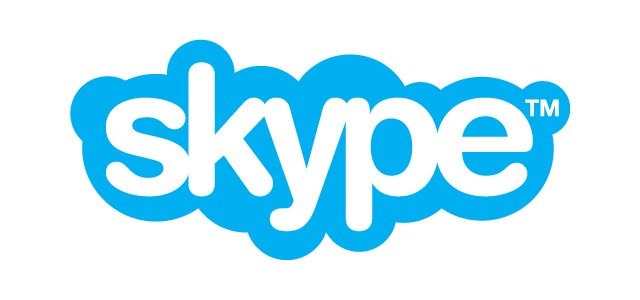
Hacking Team leak shows how to sneak malicious apps into Google Play
Italian security and surveillance company Hacking Team was most famed for supplying monitoring tools to governments around the world, but a recent security breach revealed the inner workings of the outfit. Sifting through the leaked data revealed not only spying tools and Flash vulnerabilities, but also Android apps with backdoors.
Security experts from Trend Micro found that spyware from Hacking Team was released to Google Play, bypassing checks that are usually performed. BeNews was a fake news apps -- now removed from the store -- that could be used to download remote access software to Android devices running anything from Froyo to KitKat.

How malware and gaming have grown up in parallel
Since the advent of personal computing, games and malware have developed more or less side by side. Today the world of gaming has become intertwined with malware as cyber criminals have turned game theft into something much more lucrative.
The digital world, as we know it today, can be a dangerous place, to bring these issues to light anti-malware company Webroot has teamed up with the new movie PIXELS, released on July 24, to issue an infographic on the history of malware and gaming.

Microsoft's 'feeble' enterprise security and virus protection is the worst
Tests carried out by independent security labs AV-Test show that Microsoft is at the bottom of the league when it comes to enterprise security and virus protection. The tests pitted 11 security solutions against each other, and Microsoft's Endpoint Protection 2012 from the Microsoft Management Suite System Center 2012 was found to offer the weakest protection.
In both enterprise network security tests and virus detection tests, Microsoft trailed behind the competition in eleventh place. What's particularly concerning is that as the tool tested is bundled software, it's likely that it is precisely what many businesses are relying on for protection.

Chrome blocks access to torrent sites
Chrome users who download torrents may be thinking about switching to a different browser. Google's web browser is now blocking access to a number of big name torrent sites. This is not a case of Google taking the moral high ground about the rights and wrongs of torrenting, but part of the search giant's security program to protect users from "harmful programs".
Starting yesterday, downloaders found that access was blocked to ExtraTorrent and KickassTorrents, although the block was later lifted. The block remains in place for other torrent sites including kat.cr. Upon attempting to visit an affected site, would-be torrenters are greeted by a red, full-screen security warning that advises of the potential danger of the site in question.

How to protect yourself against ransomware
Regardless of whether you’ve been hit with ransomware or not, protecting your network from these types of attacks is now an integral part of any network security framework for both individuals and companies. Protecting yourself from intrusions and attacks requires securing your main layers of defense by utilizing Security Awareness Training and antivirus/anti-phishing software.
If you consider a computer network (even a simple one, like your home computer) to consist of a series of layers that any malware or virus needs to penetrate, the outermost layer would consist of your users themselves. After all, it takes a user’s interaction in order to initiate or allow a network intrusion. Only AFTER a user has clicked or visited a malicious link, will your secondary and tertiary layers (firewalls and antivirus) come into play. Thus, the very first layer you will need to harden is that of the human operator. It is only in recent years that the importance of this layer of security has come to be recognized. In the past, software has been relied upon as a catch-all for these types of situations. Software just by itself is not enough anymore, users must be trained to prevent such attacks from happening in the first place.

Avira wins case upholding its right to block adware
Security firm Avira has won a court case that can not only be chalked up as a win for consumer rights, but could also set something of a precedent. German company Freemium.com took Avira to court for warning users about 'potentially unwanted applications' that could be bundled along with a number of popular games and applications.
Freemium.com downloads included a number of unwanted extras in the form of browser toolbars, free trial applications, adware, and other crapware. Avira's antivirus software warned users installing such applications; Freemium took objection to this and filed a cease and desist letter, claiming anti-competitive practices. But the court ruled in Avira's favor, saying it could continue to flag up and block questionable software.

Android is the biggest target for mobile malware
Most of the malicious software for mobile devices targets Google’s Android operating system, a new report by Pulse Secure says.
Last year, almost one million individual malicious apps for Android were released, according to Pulse Secure’s Mobile Threat Report. That means the number of threats quadrupled in comparison to the year before.

Windows 10 will keep you safe from malware
Microsoft’s past attempts at protecting Windows users from malware have been patchy at best. However, with Windows 10 the company is offering a new way to help protect its customers from dynamic script-based malware and other forms of cyberattack.
AMSI (Antimalware Scan Interface) is an interface standard that allows applications and services to integrate with any existing antimalware product on your PC. Those apps can call the new Windows AMSI APIs at any time to scan for malware.

Adware spreading through Skype links
Skype users, beware. There are nefarious links being spread around through Skype, and if you click them you will be presented with a lot of adware. However, there are good news, and bad news here.
Researchers at the security behavior management company PhishMe have identified a campaign in which Skype was used to distribute adware, SC Magazine reported on Wednesday.

New ransomware says you've been watching porn on your Android device
Ransomware has become big business these days, with high-profile cases affecting computer users. Up until now though, mobile users have remained relatively safe from that particular form of infestation and only had the "garden variety" version of malware to contend with. That landscape is changing rapidly, it seems.
Security researchers at AVG have uncovered what they dub "Porn Droid". The infected device is locked by the "FBI" and the user gets a message demanding money in exchange for restoring the phone or tablet. To make the message particularly scary, it claims the offense is for child pornography.

Google Play hosts over 30 malicious Minecraft apps
Malware is still a worry on the Google Play store, even though the rate of malware is dropping to its lowest levels since the inception of the store in 2008.
One of the easiest ways to push malicious apps is by masquerading them under popular names, in this case Minecraft. Guides, tutorials, tricks and other apps would offer help, but quickly turn into a user’s worst nightmare with malware and adware spam.

The ILoveYou legacy -- how malware has changed in the past 15 years
Where were you when the 'ILoveYou' bug started spreading on 4 May 2000? Was your computer one of the tens of millions of PCs the Love Letter attacked?
Fifteen years ago, email messages with the subject line 'ILoveYou' and the message 'Kindly check the attached LOVELETTER coming from me' started propagating to millions of inboxes. The malware-laced attachment was named LOVE-LETTER-FOR-YOU.txt.vbs. Since the vbs extension was hidden by default, it seemed to recipients that the attachment was a harmless txt file. Once the attachment was opened, a VBS script would overwrite image files and send the LoveLetter email to all contacts in the victim’s Outlook address book.

Rombertik strikes! In 10 seconds, this computer will self-destruct
Viruses can be a serious problem and they take myriad forms. Viruses have become increasingly sophisticated over the years, particularly in the methods used to try to evade detection. Now Cisco's Talos security researchers have discovered the Rombertik which goes to extraordinary lengths to avoid analysis.
Researchers managed to reverse-engineer the virus and found "multiple layers of obfuscation and anti-analysis functionality". One sample was found to include code that would destroy the MBR of the host computer if analysis or debugging is attempted.

Antivirus tool stripped of awards after cheating
Antivirus software produced by Qihoo 360 has been stripped of awards by three leading security testers after it was found to have cheated. AV‐Comparatives, AV‐TEST and Virus Bulletin discovered that Chinese company Qihoo 360 submitted one version of its software for testing, but then released a different one.
The publicly released version of the software had a key virus detection engine disabled, resulting in a lower level of protection for users. As a result of the findings, the security testing bodies are not only revoking any awards given to the software this year, but also calling for greater transparency so consumers know what they are getting.

Aggressive Android app ads annoy and interfere
Avoiding online ads can be fairly easily achieved by installing a tool such as AdBlockPlus, but it's a different matter when it comes to ads in mobile apps. Security researchers at Doctor Web have discovered that a number of Android apps found in Google Play are plagued with aggressive ad modules.
Advertising is considered aggressive if it appears on top of other windows, interferes with the use of applications, and makes normal use of a smartphone or tablet difficult.